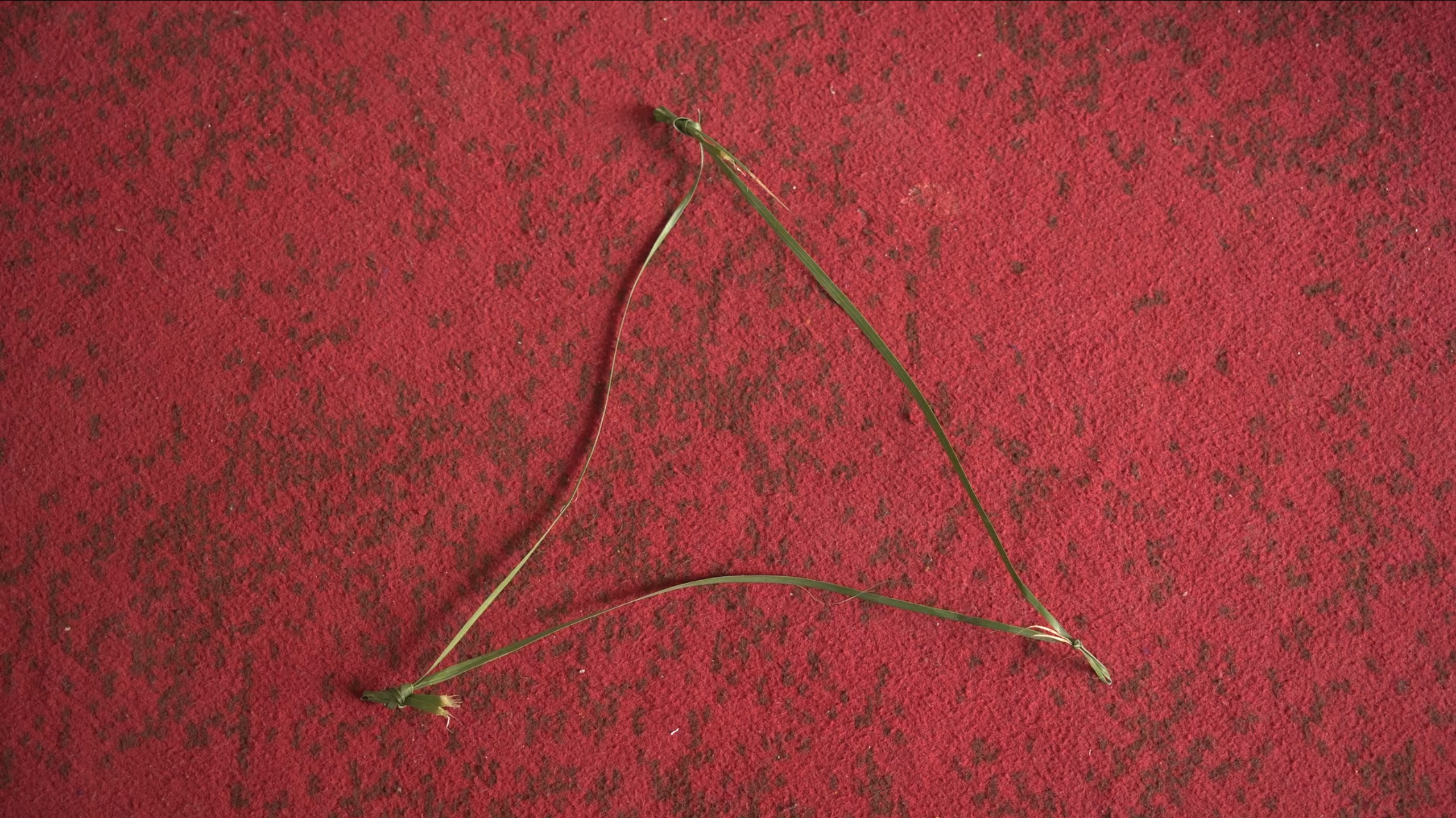a cipher for the missing
Single channel video. 7:30 minutes
(2022)
This video work explores the Baloch practice of massad in Karachi, Pakistan, whereby the date palm tree is invoked to help locate the missing. In this practice, dating back to Bibi Fatima the daughter of Prophet Muhammad, and passed down generationally by women, the tree grants access to knowledge of the unseen – past, present, future and all things hidden. Massad, meaning message or means of connection in Balochi, locates the date palm as key in a web of relationality linking wind, water, earth, human and more-than-human beings to the all-knowing realm of the divine.
At a time when the military-state seeks to render all beings visible through surveillant technologies, while disappearing those it deems threatening, massad emerges as a queer practice of recovery that centers alternate forms of relationality, connection and intimacy in a more-than-human world. A cipher made of leaves that renders the military’s disappearance tactics legible to the very communities that bear the brunt of its violence. In Karachi, the date palm also features as the main emblem of the paramilitary. Worn on uniforms and painted on watchtowers and walls across the city, this colonial emblem is a testament to the military conquest and disciplining of Sindh's ‘unruly’ desert landscapes. In exploring the tensions between the appropriation of this tree as a symbol of military power, and the tree’s material participation in native cosmologies, the work asks what it means for plants and people to belong together to a place, questioning the vigilantly patrolled boundaries that construe humans as separate from the rest of the world.
This work was made for the ‘Vanishing Act’ exhibition curated by Adwait Singh at Centre A for the Queer Arts Festival Vancouver.
‘
